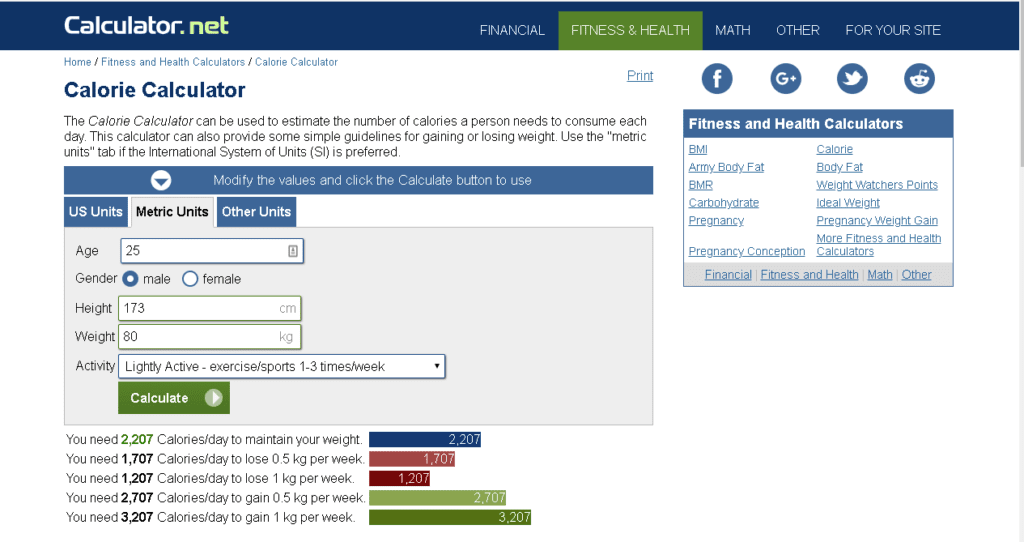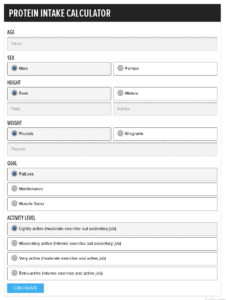All the resources we use here at Latestfuels that we think you might find handy listed in a chaotic manner.
Navigation Index
Disclaimer: This are tools that we have used or we tend to use in our research and article writting. Yes, you might know about another tool, perhaps better. Please, share it with us. And take into account that this is not an exclusive list.
Nutrition
Food Agencies
International food agencies are the ones in charged to decide nutritional standards and guidelines for the general population. They manage huge amounts of data and release food safety, nutrition and health related guidelines for free. These are crafted by high profile nutritional scientist and experts. Thus, the material provided by the governments is some of the highest, most thorough out there.
Drawbacks? They are often slow to react to new trends, they release data at a slower pace and change criteria less often. They also release the guidelines taking the general population in mind and with very broad data as a base. Unfortunately, nutrition can be very individual specific and thus, this guidelines might not suit everyone at best. Especially, if you are planning to follow specific diets (vegan, keto, paleo…) or pursue specific goals (bodybuilding, endurance sport…).
Nevertheless, they are a great source of top quality info.
US:
1- Health.gov. Great source for food & nutrition info; physical activity guidelines & recommendations and learn more about health. From the Office of Disease Prevention and Health Promotion (ODPHP).
2- United States Department of Agriculture (USDA). Food safety, food recalls and more.
3- Foodsafety.gov. Information about food safety.
4- Food & Drug Administration (FDA). Government branch in charge to approve ingredients, products, food supplements and set the nutritional label.
5- Nutrition.gov. USDA sponsored website with vast amounts of information about nutrition, supplements, diets, health impact etc.
Europe:
1- European Food and Safety Agency (ESFA). In charge of setting European dietary guidelines and references, conduct scientific research and gather consumption reports.
2- Usually, local government will have much of the saying in the general guidelines in Europe and have the ultimate saying on the safety of the products. They will have quality information that we recommend you to search. E.g. UK Food Standard agency.
Nutritional Guidelines Released by Food Agencies
1- 2015-2020 Dietary Guidelines For Americans, by the United States Health and Human Services (USHHS) and United States Department of Agriculture (USDA). Few key suggestions:
a) Eat healthily during your life, not short streches.
b) Focus on the quantity, density and source of nutrients.
c) Reduce calories incoming from saturated fats and sugars. Less than 10% of incoming calories from each source. Also reduce the amount of sodium consumed.
d) Avoid calorie rich drinks and foods. Opt for healthier alternatives.
e) Support healthy eating patterns in your community.
f) Healthy eating:
– Eat varied vegetables, including legumes, dark green vegetables, starchy vegetables…
– Consume whole fruits (over juice).
– Grains are essential, especially, whole grain.
– Good protein sources include, poultry, red meat, eggs, fish, legumes, soy products and nuts.
– Do not forget about healthy oils.
2- ESFA European Dietary Reference values for nutrient intakes. Recommended values for each macronutrient:
- Total carbohydrates: 45-60% of total energy intake.
- Sugars: No upper limit set, but agreed that high sugar diets lead to tooth decay and weight gain.
- Dietary Fiber: 25g. May have benefits if higher.
- No definitive evidence to decide about glycemic index and glycemic load.
- Total fats: 20-35% of the energy consumption. Limit saturates and trans fats in favour of mono-and poly-unsaturated.
- 250mg of long-chain omega-3.
- Daily Protein Reference Intake.
- 2 (for women) to 2.5l (for men) of water.
3- Dietary Reference Values report (ESFA).
- Daily Reference Intake for Carbohydrates and Fiber
- Daily Reference Intake for Fats
- Daily Reference Intake for Protein
4- UK NHS Eat well guide. An easy, beginner friendly information source.
5- UK Reference Intakes that appear on the nutrition labels.
Energy: 8,400kJ/2,000kcal
Total fat: less than 70g
Saturates: less than 20g
Carbohydrate: at least 260g
Total sugars: 90g
Protein: 50g
Salt: less than 6g
World Health Organization
1- Healthy diet guidelines. The explanations and basis for the basic healthy life and diet. Nutrient recommended intakes by WHO.
2- Codex Alimentarius. Effort by the United Nations and WHO to set global food standards. Website about the standards, news and challenges.
3- Food safer. Initiative to for healthier cooking habits and food safety in 5 different languages.
4- e-Library for Evidence of Nutrition Actions (eLENA). An effort to create a global database with the latest instances and agreements on nutrition procedures, ingredients, mechanics…
5- Fats and fatty acids in human nutrition. A very in-depth look at the role that fats have in human metabolism, and how we could optimize that with nutrition. Debate on what the best omega-3/6 ratios are and PUFA and MUFA recommended intakes.
Australia:
1- Nutritional guidelines for childreen and school canteens. By the Health Department.
2- Basic nutrition info from the Health department. Explanation of different terms and food sources.
3- Health education and prevention. Many resources from alcohol consumption, children health, to nutrition and physical activity.
4- Healthy Weight web portal by the Health department. It will allow access to weight control plans, ability to monitor progress, recommendations, parental guidelines and more.
5- Australian Dietary Guidelines 2013.
Non Governmental Food Agencies
British Nutrition Foundation
1- Nutrition.org. Great website with reference intakes, nutritional tips, health tips, journals and much more for every step in your life.
2- Healthy Living. All necessary to learn and pursue a healthy lifestyle.
3- 7-day meal plan based on 2,000kcal diet. A fully crafted week meal plan so you can follow and tailor it to your needs. You can also use it as an inspiration and modify it.
Scientific journals
There are tons of papers out there. One of sciences biggest problem is not the lack of information or manpower to conduct research, but the huge amount of information there is and how to display/contrast/compare this information.
1- NCBI Database. One of the best databases to find interesting articles is National Center for Biotechnology Information (NCBI). Use the search bar to find articles about the topic you are interested and read the abstract or the full article after.
2- Nature Weight Management section and Nutrition(Only hardcore). Nature.com is one of the most famous papers. In here, you will be able to find the latest news and articles on weight management and nutrition. However, the information here will be complex and too advance for most, as well as, not really applicable to real life just yet.
Tools, Apps and Websites
There are plenty of tools out there regarding nutrition: diet planners, weight management tools, macronutrient calculators, food trackers, guidelines… We sum up those which we use or we think it might be of special interest to you.
While making this recommendations, we need to clarify that there is an infinite amount of similar sites. Thus, we will only recommend those which we actually use. Otherwise, they will be listed or omitted.
Calorie Counters
1- MyFitnessPal. Food tracker-Weight management. SUPER APP
Probably the best known food tracker out there and king of all. Great application that allows you to track you nutrient intake of almost every food. All the biggest brands and restaurant chains have the nutritional information there, so you just need to type the name of the product or dish and add it. If you are eating something homemade, you can add the individual ingredients and/or create your own dish.
This huge food database is really easy to use and user friendly. You can download it to your phone and add foods scanning the barcode! You can also view it in your favourite browser.
It also comes with a lot of extra features:
- Put your weight, height, age and weight goal. It will automatically calculate your calorie intake and macronutrient (g). The latter can be customized to choose your ratio of choice of carbs/fats/prots.
It is integrated with most fitness trackers, like Garmin, and will add any exercise you do automatically, recalculating you daily caloric needs. If you don’t own a fitness tracker, you will be able to add them manually and still get a your energy needs adjusted. - You can also add any friends to your profile and compare each other achievements.
- Alternatively, visit the blogs and community to get inspired or learn few things.
All in all, one of the best apps out there regarding nutrition. Oh, and it’s free. There is a pro version, but for most the free will be what they need.
Nutrient Calculators
Calculators can be one of the best tools to customize, plan and design your diets. You will find plenty of calorie calculators, macronutrient calculators etc that will give you an estimated figure for your needs. Always tailored to your sex, age, current weight, goal weight and activity levels.
1- Calorie calculator by Calculator.net.
Handy tool that allows you to estimate how many calories you need to eat in order to maintain weight, or lose weight. The interface is fairly simple and not very fancy for modern standards; but it will allow you to get your stimate under 30s. Age, height, weight and activity levels are used to estimate your energy needs. You can quickly switch between US units and metric units, which is very convenient.

It also includes other nutrition related calculators, such as, BMI calculator (not a very good parameter), Body Fat Calculator (not very accurate usually) and Idea Weight Calculator (will depend in your muscle mass and sport orientation). As you can see, we are not very keen on the rest.
Note: MyFitnessPal and most other calorie counter/tracking apps will usually have this feature.
2- Protein Intake Calculator by Bodybuilding.com.
It might recommend you slightly high protein values. We do not see this as problems, as we tend to do sports and overall consume high protein diets. There are some concerns in the comments about the validity (due to old papers used for reference) of the parameters used. However, there is also plenty of new evidence coming out proving high protein diets have no harmul effect (Antonio J et al., 2016; Pendick D. 2015).

3- Keto Macronutrient Calculator.
For those that are looking to start or track better their ketogenic diet. It has a very user friendly UI, it is easy to use and will help you inmensely.
Learn How to Diet
One of the most fun things about nutrition (or least for some) is the variety of different diets that are out there. You will find that a vast array nutrition plans, each loved and/or hated by people who have followed them. Before starting, I want to reinforce the idea that a diet is not only a nutritional plan but a lifestyle. However, this is not a topic to be discussed now. I also have a list of the best diet shakes that you can visit, in case you need some help.
Keto Diet
There will be a page in the future with more in depth info. For now here are some resources to get started. Otherwise, you can check the best keto shakes.
The holy grail of Keto communities (or perhaps just the most popular). You will find any information you need here; from how to start to recipies and obscure recommendations. Plus, you will always be able to post your doubts and hopefull one in the 785k subscribers will be kind enough to help you.
Some of the most interesting resources in this forum:
– Keto in a Nutshell. A beginner’s guide.
– FAQ section. Have doubts? Unsure about something. You probably have not been the first.
– One week meal plan. Already designed for you. Easy to follow.
– A guide to ketosis. All this Ketogenic diet talk, but you have no idea how it works. Look here.
– Other keto oriented subreddits: /r/Ketogains; /r/ketoscience; /r/ketorecipes…
2- Other well-known websites
We have used the following websites at some point or another because even though they do not specialised in ketogenic diets, they have great ilustrations and general info. Plus, some great resources, such as, meal plans, food recommendations and guides.
– Dr.Axe. Fairly comprehensive list of Keto friendly foods.
– Diet Doctor. General information, well laid out and illustrated.
Meal Replacement Lists
1- Latestfuel’s Meal Replacement List. A copilation of the most well known brands and few key features in a simple table. This table will help you to know what brands are selling what and where.
2- In-depth Ketogenic meal replacement brands and cost spreadsheet. Credit goes to reddit u/chrisbair who made this awesome spreadsheet to compare subscription based costs for the most popular US keto brands.
3- Best Meal Replacement Shakes. The lists with our top picks for the different categories of Complete Food.
Personal Resources
In here we will link websites, spreadsheets and other resources that we have found out useful at some point in our lives. They can be workout programs, Google sheet diet/workout templates, interesting videos, etc. Most of it might be crap, but we think there are some golden gems in there.
Google Sheets
1- The Rock Meal plans, Costs, Nutrition information and Workouts followed by a redditor. Very in-depth information.
2- Two-day split workout plan. Workout plan that I used a while back. I divided into push and pull days with legs everyday and rest day (or arm day) between cycles. Looking back it is a bit crazy doing legs so often, but it might work for you like a template.
3- Stronglifts 5×5 Workout. Workouts focused on strength. Plan that allows you to track progress and document it. Made by stronglifts.com.
Google Docs
1- The Rock Workout plan. The insane workout plan and meals that reportedly the Rock follows.
Inspiring Stories
There are tons of this in Reddit and around the web, but the following stack on our minds.
1- 1.5 years of gym progression, with workout plans and before/after pictures. Great for those who want to get in shape and need ideas on how to start.
2- Keto transformation. A tale of a dad losing over 100lbs in 8 months to prepare for a trip to Disney with his kids. Transformations like this are quite common in the Keto subreddit, but I find this story compelling. Anyone can do it with the right motivation.
3- How to push your mind to the limits (Youtube Podcast). An incredible tale of a man who overcame himself to become a navy seal, run 205 miles in one go, 100 miles without barely any training and break many other unbelievable records. True story to show anyone can do anything.
Supplement Shops, Brands and Other Stuff
This is a bit of an odd subsection, but we just want to put out there products that have worked for us in areas around fitness, nutrition and supplementation.
Supplement Shops
1- Discount Supplements UK. We have often found great deals here in Supplements. We have bought many protein bars in Buy One Get One Free or 50% sales. We find that protein bars tend to be too expensive and often not worth the money. We like to go about £1/bar basis usually. We also found great deals in some of the top brands like Optimum Nutrition and SciMx. What is the catch? This products are often close to the expiration date or past the Best before dates. We have bought over 60 bars and supplements and never had a problem. Oh, only available in UK and Ireland unfortunately. Good luck in your hunt.

2- MyProtein. Our favourite protein supplement brand, mainly for its competitive prices. Yes, the quality might not be as high as some of its competitors, TheProteinWorks or Optimum, but it suits the purpose. If you are able to afford the more premium products, by all means do it. For the rest, it will do just fine.
Clothing and Fitness Apparel
1- Gymshark. Took the fitness clothing industry by a storm and their clothes are great for both men and women. You will find to be a little expensive, but they do last long and are mostly very good quality products. They do some of the best hoodies on the market.
2- Under Armor. It is a clothing giant, but their gym apparel and sport clothes are sleek, well-priced and comfortable. We always have a top or two in our wardrobes. We are specially big fans of the UA gym t-shirt range.
3- Pursue. Smaller company with some interesting clothes for the gym. They had great black Friday deals last year. You might want to wait for that, even if they do run sales and discounts most of the year around.
4- Rise. Canadian brand with top quality gym equipment (I own some great squating belt that has lasted me 3+ years). It is a bit pricey, but as their catalogue extends and they become more popular, it might get cheaper.

External Resources
The Complete Food Survey. A survey result of a joint initiative by Saturo and Queal that breaks down every detail of ‘lent users, including: most replaced meal, who is the average consumer, what the consumers believe is important and so on. A great little overview of the market for newcomers and anyone who is interested. I also share my opinion on it here.
Repas en Poudre. A french blog about meal replacement with up-to-date information and a very clean structure. Sharp and very useful if you are a French complete food user that prefers reading in their native tongue. Go and visit it!
